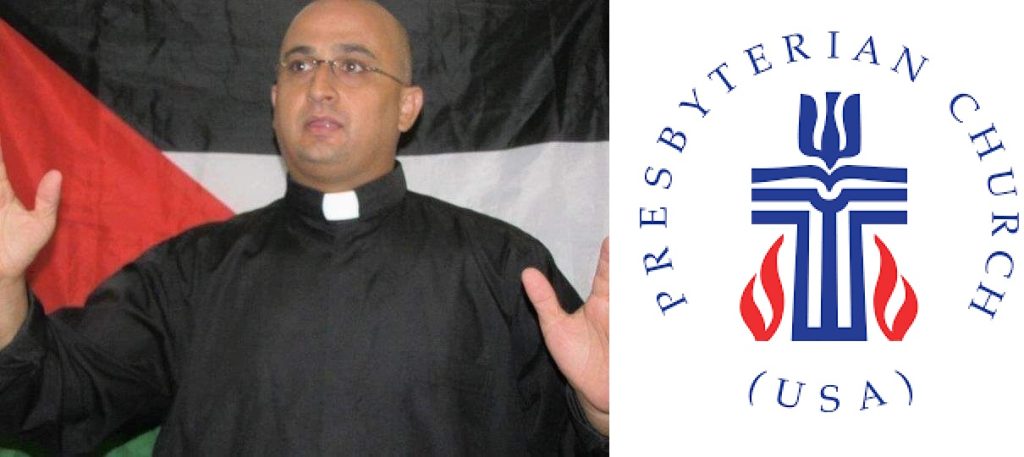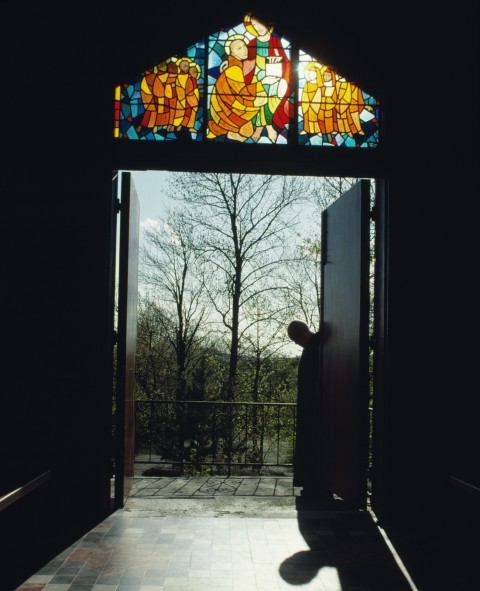
Previous Palestinian pastor welcomes Presbyterian Church (USA) decision to divest from Israel
by Sean Rowe in the September 26, 2018 issue

Eight years ago, I announced that one of my predecessors as bishop of the Episcopal Diocese of Northwestern Pennsylvania had abused young girls at a diocesan summer camp and in other church settings more than 30 years ago. The demands for reform that I hear many Roman Catholic leaders expressing in the wake of the Pennsylvania grand jury’s report are familiar to me because I have made them too. But in the years since I first disclosed both my predecessor’s abuse and the failure of our hierarchy’s response, I have learned that far more than reform is needed.
The Roman Catholic leaders I know are good men who are entirely sincere in their grief, anger, and insistence that they will reform the church and eliminate sexual abuse in the ranks of clergy and laypeople. But putting good men—and in my church’s case, good women—in power isn’t enough. The way in which churches govern themselves and distribute power is fundamentally flawed.
Although the channels through which authority is exercised in denominations varies, most clergy are taught some version of the idea that the church is an institution ordained by God to do God’s saving work in the world. This belief sometimes leads the church’s leaders to protect its reputation at the expense of a more fundamental Christian call to tell the truth. When clergy are confronted with abuse and cover-ups committed by colleagues, mentors, and friends, the urge to keep the institution’s secrets—to pray for forgiveness rather than taking action—is powerful. Like corporations, churches hide abuse to preserve money and reputation, but the problem goes beyond that. The church refuses to confess its transgressions because it believes that to do so would compromise its ability to carry out God’s mission in the world and would reveal it to be a human institution that is not immune to human sinfulness.
These basic beliefs about the church’s exceptional nature have given rise to dysfunctional and destructive structures that render even church officials who genuinely care about children and their well-being incapable of confronting abuse effectively. In these closed systems, the only people who can pass judgment on abusers and those who enable them are the hierarchs who are also the architects and protectors of the status quo.
To be sure, church leaders who have covered up abuse must be held accountable. But we must come to terms with the folly of blaming and dismissing guilty church leaders only to repopulate the existing opaque and unaccountable structures with well-meaning people rather than addressing larger systemic issues. We congratulate ourselves, for example, on putting more stringent screening processes in place for prospective clergy and then trust that with better people, our old ways of hoarding power can be made new. But a hierarchical system that lacks a transparent means of accountability will invite abuse regardless of how good the people who populate that system might be. Until we create rigorously accountable and transparent structures that involve the laypeople of the church at every level, abuse will flourish; no amount of clergy screening, bishop blaming, or additional grand jury investigations will prevent more abuse and more cover-ups from happening.
In most church hierarchies, whether they be denominations or large, multi-campus nondenominational churches, leaders—who have often received cursory training at best—have relative independence about how to handle complaints about clergy behavior. Even when disciplinary structures exist, the decision about whether to employ them is the prerogative of a bishop or senior clergy leader and is seldom subject to review. Authority for investigation and discipline is left in the hands of a few people of privilege, and the hierarchy’s decisions are usually secretive and final.
The closed nature of these disciplinary systems creates conditions in which leaders withhold information about offenders, both intentionally and unintentionally. Many bishops and other clergy leaders, fully aware of the gravity of abuse cases, rely too heavily on professional advice that helps avoid legal action and financial liability but promotes secrecy. As a result, most churches lack a denomination-wide central database of offenders and case details. Personnel files rarely follow clergy to new judicatory bodies or congregations. These information silos create the conditions in which abusers can move from one post to another with impunity because bishops or other leaders, lacking clear evidence on which to act, can turn their heads.
To end these systems that invite both abuse and cover-up, we must create independent bodies to review both current and historic abuse cases and to provide oversight for bishops and church leaders. Although we proclaim the church to be the body of Christ in the world, clericalism results in the laity being largely excluded from ecclesial structures, as even Pope Francis and other prelates have acknowledged. The body is weakened both spiritually and practically when it does not include all the people of God, and abuse has ground on which to flourish. The theological result of this exclusion is heresy; the practical result is that, deprived of the voice and vitality of the faithful, the closed system of clergy and bishops continues to perpetuate the status quo in which power is hoarded and secrets are kept.
If, for example, independent laypeople had been involved in the intake or review of many of the abuse cases that have come to light in recent years, discussions about the fate of abusers would have included, at the very least, the perspectives of women, parents, and people whose salaries were not paid by the church. We now know that many bishops’ decisions to return abusers to ministry were driven by desire to limit financial liability, protect clergy vocations, and preserve the church’s reputation. Lay involvement would have given the perspectives of victims and child advocates at least a fighting chance to redress the balance and, perhaps more essentially, made decades of secrecy nearly impossible to engineer.
But even as we move toward wholeness in today’s church, we will not always get it right. The Episcopal Church, like so many others, has worked to create healthy structures for addressing abuse. They are, however, fallible—especially when the people populating those structures and making them work are privileged white men. I know, because I am one of them.
In my first formal meeting with the courageous young woman who brought the horrific abuse perpetrated by one of my predecessors to light, we complied with the intent of our church’s disciplinary structures and canon laws by having lawyers, psychologists, and me, a bishop, all present to hear her tell the story of her abuse. She was brave and persevered; I learned that meetings like this run a high risk of retraumatizing victims and should not be part of our investigative process. I will always regret that working within a faulty structure, I learned this lesson at the expense of a woman to whom the church had already done its worst.
Protecting the church, its reputation, and the vocations of clergy can no longer be more important than developing accessible, transparent procedures through which clergy and bishops are held accountable. Whether this is done through disciplinary panels, ecclesiastical courts, or through cooperation with civil authorities, faithful lay people must not only have input; they must wield authority over both sexual abusers and leaders who cover up abuse. In some denominations, the idea of laypeople exercising formal disciplinary authority over clergy and bishops is unthinkable, but that kind of clerical exceptionalism has resulted in the abuse of vulnerable people for centuries. For the church to survive with a modicum of credibility, we must change.


تكافح مجلة “ملح الأرض” من أجل الاستمرار في نشر تقارير تعرض أحوال المسيحيين العرب في الأردن وفلسطين ومناطق الجليل، ونحرص على تقديم مواضيع تزوّد قراءنا بمعلومات مفيدة لهم ، بالاعتماد على مصادر موثوقة، كما تركّز معظم اهتمامها على البحث عن التحديات التي تواجه المكون المسيحي في بلادنا، لنبقى كما نحن دائماً صوت مسيحي وطني حر يحترم رجال الدين وكنائسنا ولكن يرفض احتكار الحقيقة ويبحث عنها تماشيًا مع قول السيد المسيح و تعرفون الحق والحق يحرركم
من مبادئنا حرية التعبير للعلمانيين بصورة تكميلية لرأي الإكليروس الذي نحترمه. كما نؤيد بدون خجل الدعوة الكتابية للمساواة في أمور هامة مثل الإرث للمسيحيين وأهمية التوعية وتقديم النصح للمقبلين على الزواج وندعم العمل الاجتماعي ونشطاء المجتمع المدني المسيحيين و نحاول أن نسلط الضوء على قصص النجاح غير ناسيين من هم بحاجة للمساعدة الإنسانية والصحية والنفسية وغيرها.
والسبيل الوحيد للخروج من هذا الوضع هو بالتواصل والنقاش الحر، حول هويّاتنا وحول التغييرات التي نريدها في مجتمعاتنا، من أجل أن نفهم بشكل أفضل القوى التي تؤثّر في مجتمعاتنا،.
تستمر ملح الأرض في تشكيل مساحة افتراضية تُطرح فيها الأفكار بحرّية لتشكل ملاذاً مؤقتاً لنا بينما تبقى المساحات الحقيقية في ساحاتنا وشوارعنا بعيدة المنال.
كل مساهماتكم تُدفع لكتّابنا، وهم شباب وشابات يتحدّون المخاطر ليرووا قصصنا.